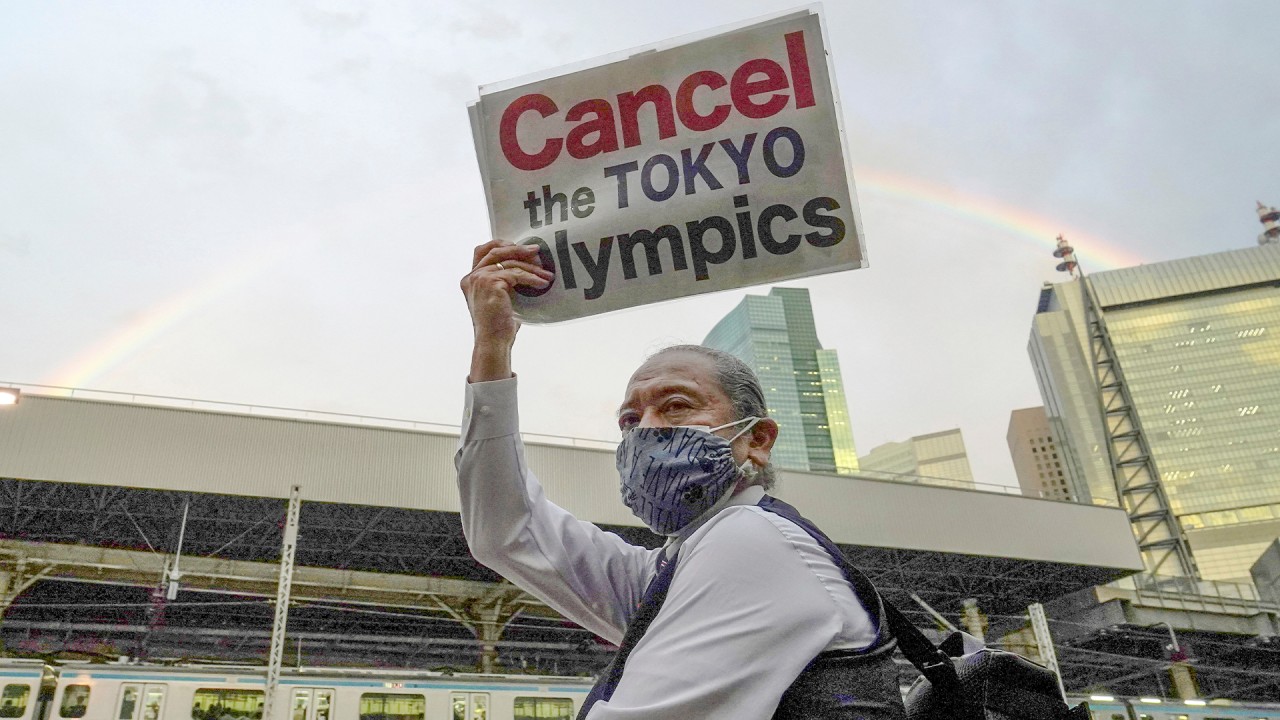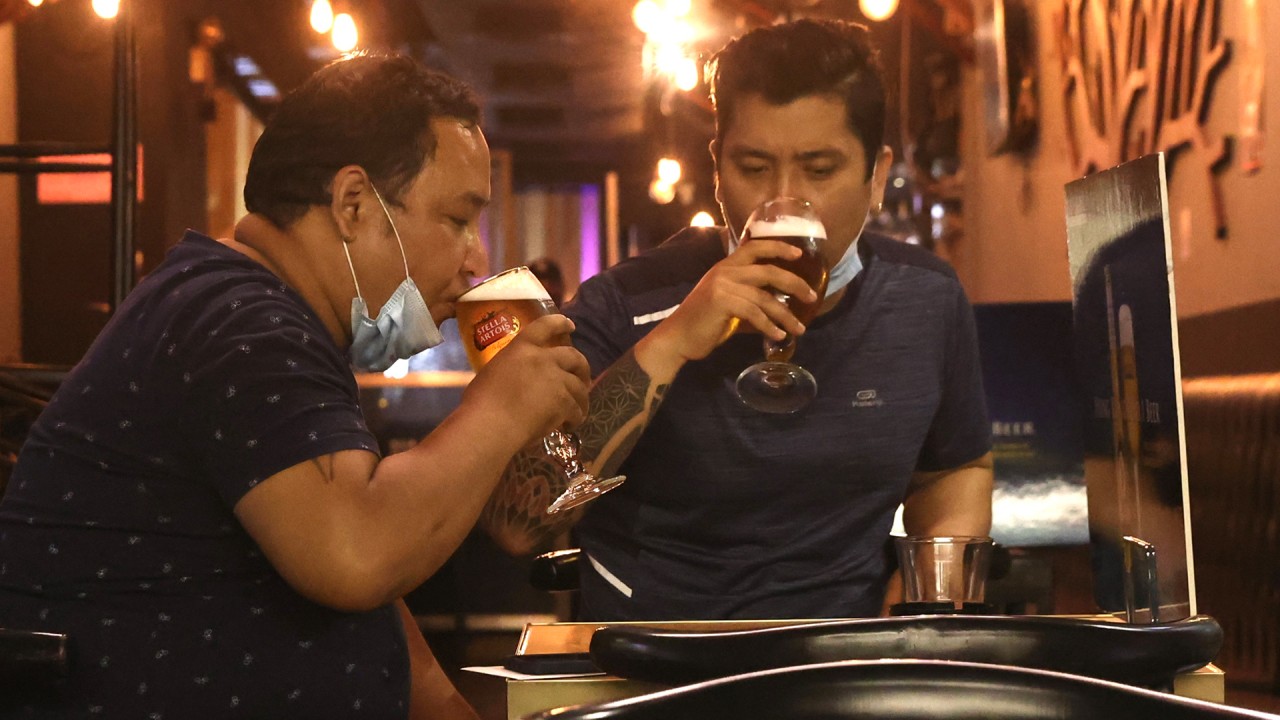
As borders reopen, Asia’s ‘zero-Covid’ economies need to start puzzling it out
- To rejoin the world, they will have to ditch their zero-infection policy, accept greater risks and disruptions, and persuade people to accept more surveillance
- Where government legitimacy is linked to virus eradication, this will be undermined. Here in Hong Kong, a conversation about all this needs to begin and soon
The pandemic has split the world into two camps. One camp – represented by mainland China, Hong Kong, Taiwan, Australia and New Zealand – is pursuing a policy of Covid-19 eradication. This is their definition of success: zero or close to zero cases.
The other camp – made up of most other countries – is trying to manage the pandemic: balancing economic and social demands against health necessities. For this camp, there is an acceptance that they will not be able to eradicate the virus though they aim to minimise its harm.
While eradicating the virus would have been the optimal strategy, this is one area where the dominant practice – rather than the best practice – becomes the norm.
The gap between these two approaches creates a threefold challenge for those in the first camp, especially as they seek to reopen their borders and return to a “new normal”. First, it implies that governments and their populations will have to accept disruptions as a standard in social and economic behaviour.
If borders are open to trade and travel, then the virus will be transmitted along those routes as well. This implies that the world is looking at suboptimal performance. We are not returning to a Covid-19-free world, unless a vaccine is found that comprehensively protects against the virus and its variants (as happened with polio).

04:12
What do we know so far about the Covid-19 variants?
The virus could mutate into less of a threat for humans – as happened with the third wave of the Spanish flu – but could also become more lethal – as with the severe acute respiratory syndrome (Sars) and the Middle East respiratory syndrome. Those in the second camp inherently accept this latter outcome as a possibility, even as they hope for the former.
Third, the only way to mitigate the first two challenges is with greater biotechnological and biomedical surveillance and interventions.
In not comprehensively addressing the virus, we will need data on individuals’ movements and associations to track and trace outbreaks as well as a greater reliance on vaccinations. This presents a profound challenge in all countries but especially in democracies.
I’ve had my Covid-19 shots. Now where’s my vaccine passport?
All of this then creates a fourth challenge: how to define failure? A bedrock argument in all members of the first camp links the eradication of the virus with government performance and social trust. That now goes out of the window.
How do these governments ensure their legitimacy even as they are forced to take steps – such as opening their borders to a still-infected world – that undermine a key rationale for that legitimacy? How do they explain to their citizens that the sacrifices they have made are not the end but rather, the beginning of a new era of riskier human interactions?

03:01
Protests grow to cancel Tokyo Olympics as Covid-19 outbreak worsens in Japan
For any government where trust is low or fragile, attempting to articulate that explanation will only invite greater political unrest. There will not only be public resistance against the argument but also a political unwillingness to make it in the first place.
A secondary challenge is that the notion of failure needs to be tackled without creating additional racial or geopolitical tensions with states that have failed to address the virus as comprehensively. Given the current state of world affairs, that seems unlikely.

01:52
‘Vaccine bubble’ allowing Hong Kong bars and party rooms to reopen leaves many confused
While our experiences with Sars, bird flu and swine flu meant that people were proactive in wearing masks and supporting social-distancing measures, those older outbreaks ended or attenuated into relatively minor health challenges.
We live under a cloud where a return to much stricter lockdowns is always possible. The longer this situation grinds on, the more fatigued people become with following pandemic rules, and the greater the likelihood of social resistance.
As West opens up, Asia’s ‘zero-Covid’ economies face hermit risk
The problem we face is that Covid-19 is not just about Hong Kong. We are one piece of an interdependent global jigsaw puzzle and, more than ever, our plans are not in our hands. A conversation needs to be started as to what the pandemic endgame will look like.
The sooner that starts, the sooner businesses, schools and people can be informed of the risks and can begin to develop strategies to mitigate against those risks. The later that conversation begins, the greater the threat of significant disruption.
Here in Hong Kong, as in many other places, we look forward to the reopening of borders, and the resumption of trade and travel. A return to normalcy. The presence of Covid-19 in so many countries suggests that will not happen as smoothly as everyone desires. It is time to start talking.
Dr Nicholas Thomas coordinates the CLASS One Health research cluster at City University of Hong Kong. He has previously published on Sars, bird flu, health governance, and antimicrobial resistance. Dr Thomas is a Fellow of the Royal Society of Public Health

